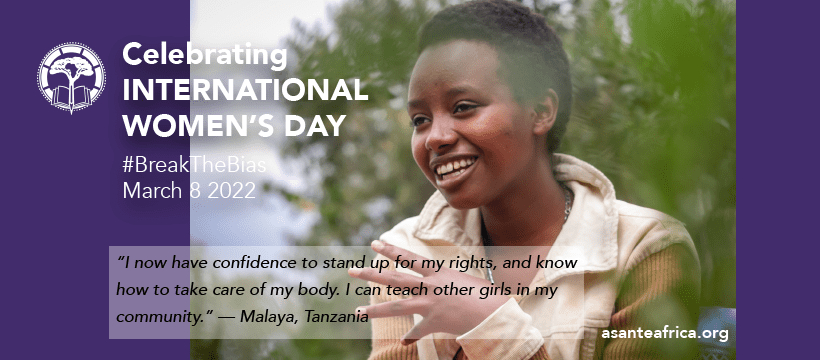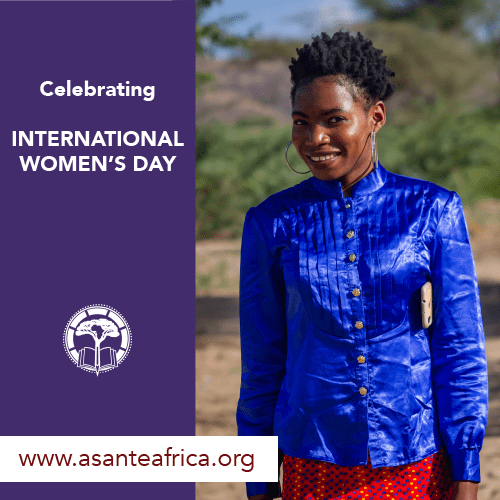International Women’s Day 2022: Gender Equality Today for a Sustainable Tomorrow
International Women’s Day, observed March 8, 2022, is the international celebration of the contributions of women and girls around the globe. It also is a reminder that the fight is not over for many women who have been denied equal rights and opportunities to participate in and affect change in the world.

The Significance of International Women’s Day
International Women’s Day dates back to the early 20th century, with the first recorded event occurring in 1911 across Austria, Denmark, Germany, and Switzerland. Participants demanded women have equal rights to vote, hold public office, and be free of sexual discrimination in employment. The power of this movement was realized early in its history as International Women’s Day demonstrations in Russia marked the beginning of the Russian Revolution which led to the abdication of Tsar Nicholas II. Although its origins led to it being associated with being celebrated primarily by communist countries early on, its adoption by the United Nations in 1977 led to its global observance with a number of countries recognizing it as an official holiday. Equal rights and opportunity remain core to the movement to this day.
It remains a significant rally point and reminder of the need for gender parity, which supporters claim we likely won’t see in our lifetime. In fact, there is fear that the pandemic has resulted in a setback in the drive for equality, with more than four times as many women dropping out of the workforce than men to perform unpaid work at home. This regression to traditional gender roles may seem innocuous given that someone in the family had to address those needs, the alarm is that it shows the fragility of the progress made thus far in gender equality and how much work there is ahead.
Gender equality is key to sustainable development and growth
Each year, the United Nations adopts a theme for International Women’s Day. This year, the theme is “Gender equality today for a sustainable tomorrow”, which is meant to recognize the women and girls who provide leadership on climate change mitigation and response and are working to build a more sustainable future for all. Additionally, it brings attention to the fact that, particularly those in developing countries,
-
- Women and Girls are most vulnerable to the effects of climate change.
- Women and girls represent the majority of both the world’s impoverished population (70% of the 1.3 billion people).
- Women also make up a large proportion of the workforce involved in food production but land ownership is rare.
- Given the dependence of agriculture and poor rural communities on natural resources women are the group most displaced by the effects of climate change (80% of displaced persons are women and girls).
- Furthermore, due to social and cultural norms, women generally have limited control and/or decision-making authority as to the goods, services, and benefits that impact climate change.
As a result, the most vulnerable group has not had the power to confront climate change. Women’s needs must be considered in planning and funding mitigation efforts against climate change. They need to be part of the decision-making process and have a say in combating the threats facing them – not just because they are affected, but also because the results are better.
Existing research has identified six core competencies which are needed for global action and change around sustainable development: long-term thinking, innovation, collaboration, transparency, environmental management, and social inclusiveness. These competencies are most prevalent in gender-balanced leadership teams, which doesn’t mean that only women have these competencies, but that these competencies come to the surface prominently in gender-balanced leadership teams.

In a separate, but related statement on the power of gender equality, the McKinsey Global Institute published a global study in 2015 which stated optimal economic growth is tied to gender parity. Moreover, it pointed to developing regions with greater inequality, like sub-saharan Africa, as those poised for the greatest growth if gender parity is achieved. All measures point to the increased value obtained when women are included and equal participants in high-level planning and decision-making.
This years’ International Women’s Day theme identifies the need to continue to examine the opportunities and barriers to equal participation in decision-making related to climate action and sustainability. Asante Africa is working to address this by creating opportunity and overcoming barriers to empower girls to become change agents and future leaders in their communities. Our programs have been proven to have far reaching impacts – not just to those youth directly helped, but also to those touched by Asante Africa alumni. While on this quest to empower young change agents in a vulnerable region of rural east Africa, Asante Africa’s girls program has been recognized by the United Nations Girls Education Initiative as a best practice. We will continue to fight for gender equality. Learn about our work, share our stories, and if you feel the calling – help us through your time or donations.
WRITTEN BY: Josh Donnelly
